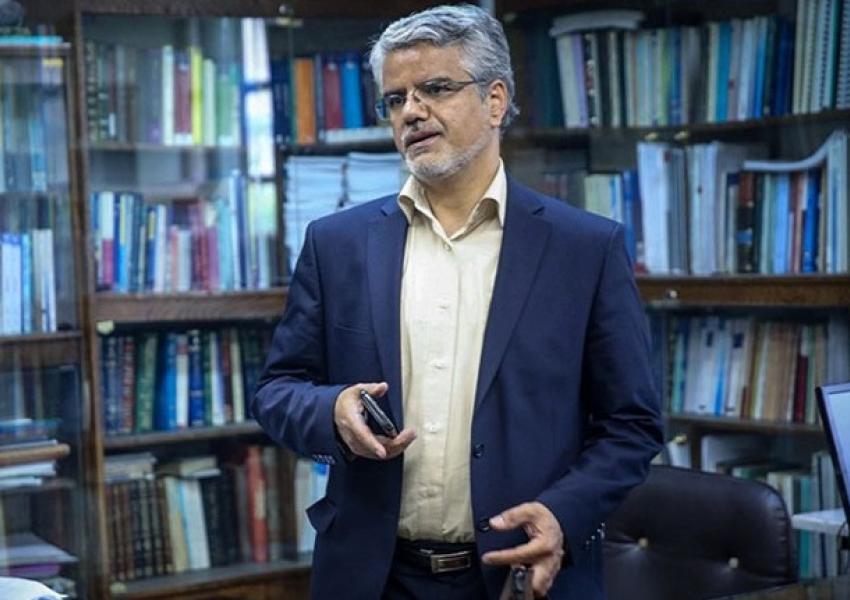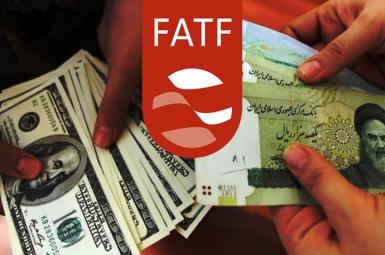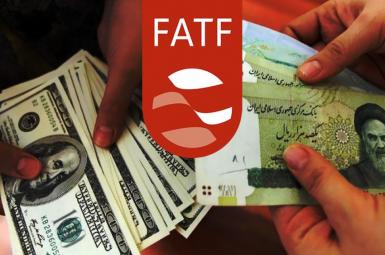
Former Lawmaker Says Referendum Needed On Iran's Foreign Policy
Former reformist lawmaker Mahmoud Sadeghi said Monday there were “more important” issues to be resolved by referendum than replacing state subsidies of bread, medicine and fuel with cash handouts, as some members of parliament propose.
Sadeghi, a member of parliament for Tehran from 2016 to 2020, cited Iran’s proposed accession to the Financial Action Task Force (FATF) and the fate of its 2015 nuclear deal with world powers, the JCPOA (Joint Comprehensive Plan of Action).
"Referendums have become a taboo in the country but they can resolve many problems where there is a deadlock,” Sadeghi told Borna News. “The nuclear issue which has become a dead-end can be solved with a referendum, or regarding the [accession] to the FATF, a referendum can help.”
By contrast, Sadegh argued that questions of subsides and cash handouts should be matters for parliament. While the value of cash handouts has been eroded by inflation since introduced by President Mahmoud Ahmadinejad, they remain popular.
Cash handouts generally favor poorer people with subsidies of everyday items, especially fuel, tend to be regressive, many economists argue. The introduction of handouts was welcomed by bodies like the International Monetary Fund as part of wider reform of subsidies.
Resolving differences
Iran's former president, Hassan Rouhani, repeatedly suggested referendums as a way to overcome fundamental differences of opinion over policy issues, particularly over the nuclear issue and the FATF.
Many principles opponents of Rouhani opposed his call. In 2019, Abbasali Kadkhodai, spokesman of the constitutional watchdog Guardian Council, said the president was "mistaken" about the constitution and called his suggestion "inexpert."
Article 59 of the Iranian Constitution states that "in extremely important economic, political, social, and cultural matters, the function of the legislature may be exercised through direct recourse to popular vote through a referendum." A decision as to what constitutes “extremely important” and suitable for a referendum would require the support two-thirds of parliament.
Iran has held three referendums, two in 1979 approving a new constitution, and one in 1989 to approve constitutional amendments including removing a requirement for the supreme leader to be a source of emulation (marja), which allowed Ali Khamenei to assume the role.
FATF legislation stuck
Accession to the FATF has been controversial for some years, with two pieces of legislation passed by parliament and rejected by the Guardian Council stuck at the Expediency Council, which moderates disputes between state bodies.
Reformists and centrists argue that FATF accession would improve Iran’s access to the international banking system when and if United States sanctions are lifted, whereas principlists tend to argue that the transparency measures required for accession would make Iran more vulnerable to punitive US action.
Iran has been on an FATF blacklist, along with North Korea, since February 2018. FATF members − who host most of the world’s financial centers − are required to exercise enhanced diligence with blacklisted states.
President Ebrahim Raisi (Raeesi) has said he is ready to revive the JCPOA, which many principlists opposed, if it is “in the people’s interests” and removes US sanctions, but has not made his position on FATF accession FATF clear. Raisi's economic team is largely made up of those who have opposed FATF accession.
Reza Padidar, chairman of the energy committee of Tehran Chamber of Commerce, told the Iranian Labor News Agency (ILNA) Monday that Iran would struggle to attract foreign investment without a revived JCPOA and FATF succession.
Abolfazl Amouei, a pro-government member of parliament, said Monday Iran could not accede to the FATF unless US sanctions were lifted. "Expecting transparency in international financial transactions is an excessive demand and improper as long as cruel unilateral sanctions [remain]," he told Borna News.





